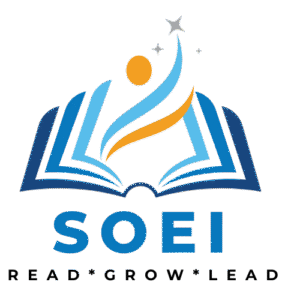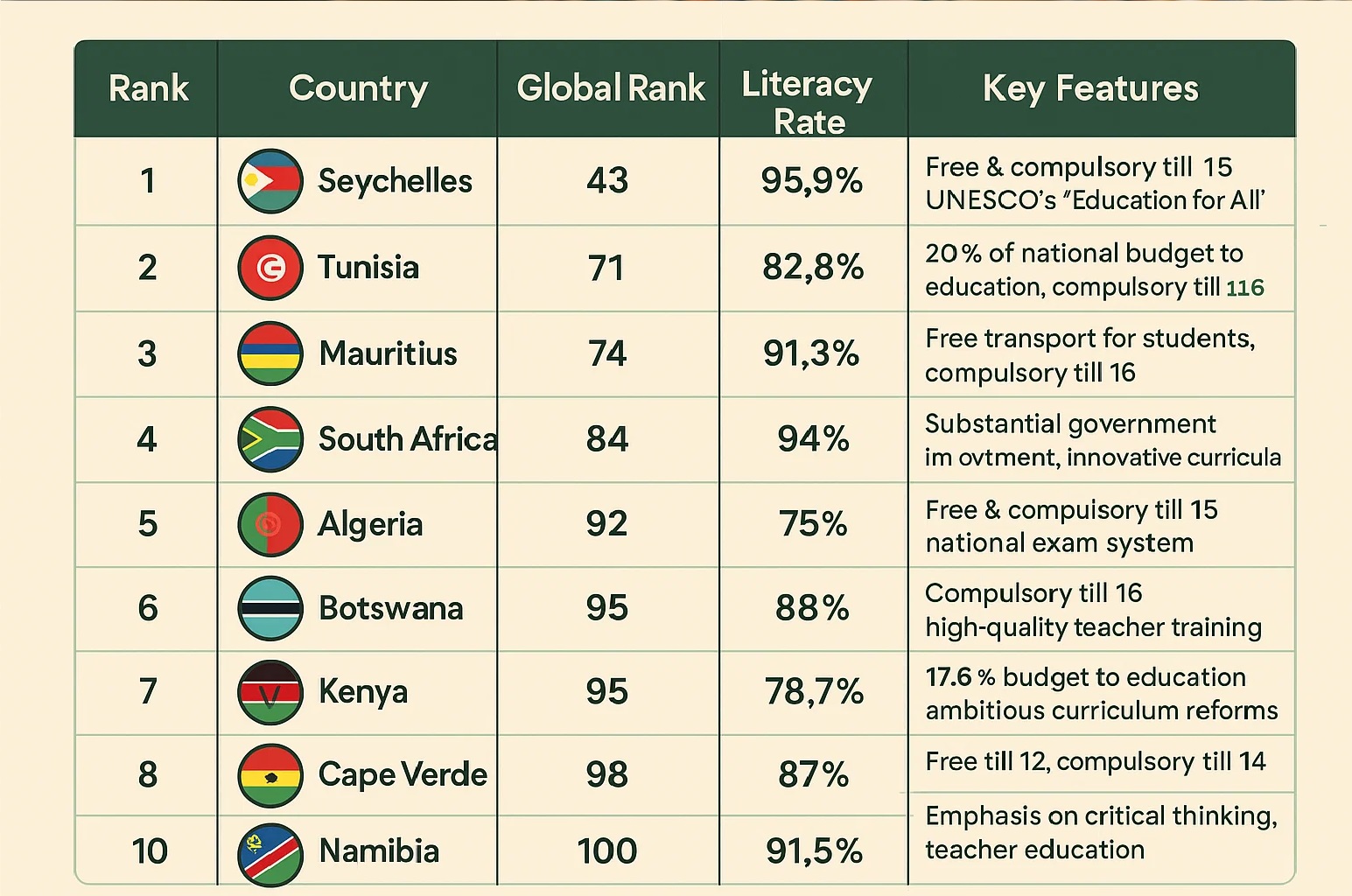

Nigeria, with its large population and pivotal role in Africa, faces persistent challenges in its education system—including underfunding, infrastructural gaps, teacher shortages, and regional inequalities. While there are signs of progress, how does Nigeria’s education system compare to the continent’s strongest performers?
Overview of Nigeria’s Education System
Nigeria operates a 6-3-3-4 system: 6 years of primary, 3 years each for junior and senior secondary, and 4 years tertiary education. Education is compulsory for children between ages 6-15, but disparities exist, especially in rural vs urban settings. While elite private schools excel, public schools (especially in the North) often lack basic amenities, sufficient funding, and qualified teachers. Despite large government investments in recent years, Nigeria ranks 124th globally and 11th in Africa for education, with a literacy rate estimated around 62%–70%.
Africa’s Top 10 Education Systems (2024/2025)
According to multiple analyses and international rankings, the top 10 African countries for education are:
| Rank | Country | Global Rank | Literacy Rate | Key Features |
|---|---|---|---|---|
| 1 | Seychelles | 43 | 95.9% | Free & compulsory till 16, UNESCO’s “Education for All” |
| 2 | Tunisia | 71 | 82.8% | 20% of national budget to education, compulsory till secondary |
| 3 | Mauritius | 74 | 91.3% | Free transport for students, compulsory till 16 |
| 4 | South Africa | 84 | 94% | Substantial government investment, innovative curricula |
| 5 | Algeria | 92 | 75% | Free & compulsory till 15, national exam system |
| 6 | Botswana | 92 | 88% | Compulsory till 16, high-quality teacher training |
| 7 | Kenya | 95 | 78.7% | 17.6% budget to education, ambitious curriculum reforms |
| 8 | Cape Verde | 98 | 87% | Free till 12, compulsory till 14 |
| 9 | Egypt | 99 | 71% | Compulsory till 15, major digital literacy focus |
| 10 | Namibia | 100 | 91.5% | Emphasis on critical thinking, teacher education |
Nigeria ranks just outside the top 10. For broader context, Ghana (12th in Africa) surpasses Nigeria in education quality, with a literacy rate near 79% and compulsory, free basic education to age 15.
Key Comparative Indicators
-
Budget Allocation: Top-performing countries (Tunisia, Kenya, South Africa) spend about 17–20% of their national budget on education – much higher than Nigeria’s typical allocation, which averages around 7%.
-
Literacy Rate & Completion: Seychelles, Mauritius, and South Africa boast literacy rates over 90% and strong secondary completion. Nigeria lags behind, partly due to out-of-school children and regional instability.
-
Teacher Quality & Training: Botswana and Namibia excel in continuous teacher training and support, while Nigeria struggles with underqualified staff in public schools.
-
Infrastructural Quality: Urban bias in Nigeria leaves rural regions and North East behind, while Mauritius and Cape Verde have less disparity between regions.
-
Curriculum Innovation: South Africa and Kenya actively update curricula for critical thinking and vocational readiness. Nigeria’s curriculum is often criticized for being outdated and exam-centric.
-
Access & Equity: Seychelles and Tunisia have achieved high rates of gender parity and inclusion, whereas Nigeria faces ongoing challenges with girl-child access, especially in northern and rural areas.
Fact-Checked Findings
-
Seychelles is Africa’s educational powerhouse, having fully achieved UNESCO’s “Education for All” and ranking 43rd worldwide, with strong digital skills education and near-universal literacy.
-
Tunisia allocates 20% of its budget to education, focuses on inclusivity and innovation, and ranks 71st worldwide.
-
Nigeria excels in some private and urban sectors and has several distinguished universities. However, its national system is hindered by underfunding, exam-oriented teaching, and uneven resource distribution, placing it behind not only Seychelles, Tunisia, Mauritius, and South Africa, but also behind Botswana and Kenya in holistic educational outcomes.
Recommendations for Nigeria
To join the continent’s elite in education, Nigeria should:
-
Raise education’s share of the national budget to at least 15%–20%.
-
Invest in nationwide teacher training and support.
-
Modernize and diversify the curriculum for practical and digital skills.
-
Address regional disparities through targeted funding and community interventions.
-
Enforce compulsory and free basic education, with special attention to girls and marginalized groups.
Recap
While Nigeria remains an African giant in population and economy, transforming its education system to meet the standards set by top-performing countries requires robust investment, bold reforms, and an unshakable emphasis on equity, quality, and innovation.
Citations:

